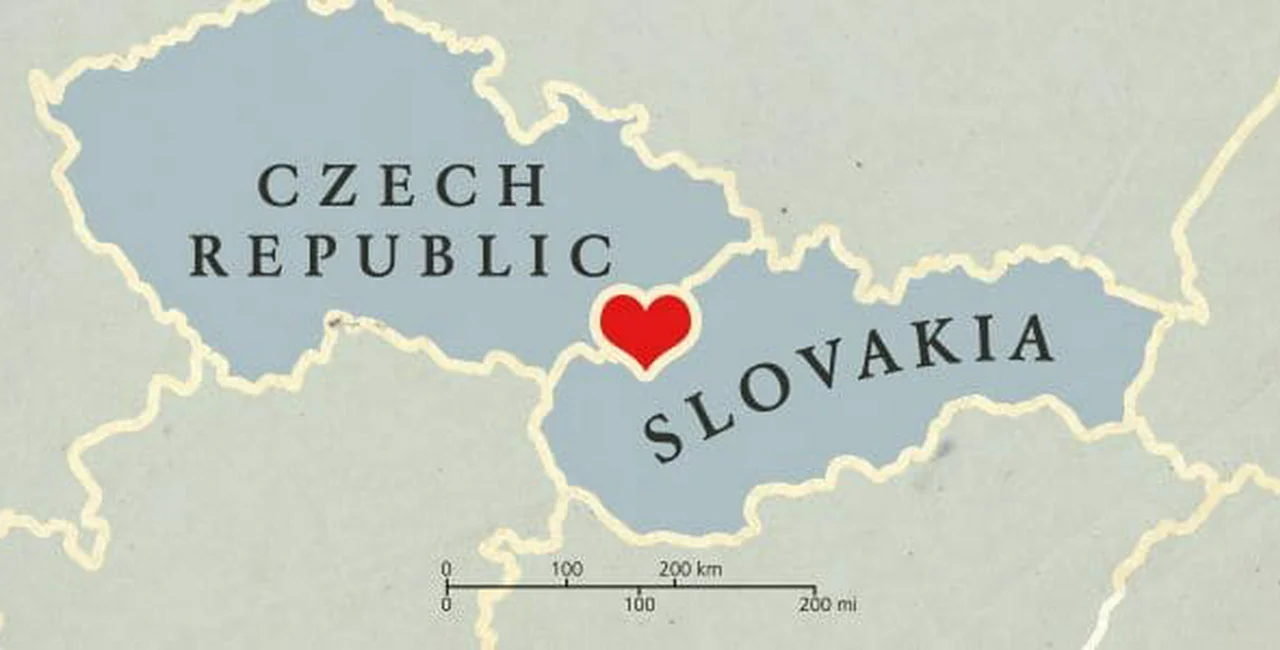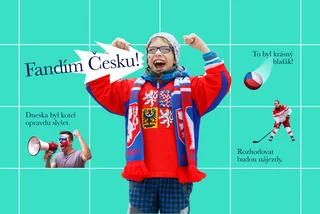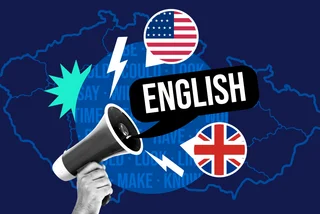This week is the anniversary of the Velvet Divorce, the peaceful separation of Czechoslovakia into the Czech and Slovak republics, that took place 25 years ago on January 1, 1993.
If you have Czech friends and family who came of age before the split, you know they can do a neat party trick: pretty much understand the Slovak language in its entirety.
That’s because of the government-mandated bilingualism of the era – the news was broadcast in Czech and Slovak, films were screened in both languages, and generations of Czechs and Slovaks grew up immersed in a second language.

Since the dissolution of Czechoslovakia, the Czech and Slovak written standards have been deemed the official languages of the Czech and Slovak Republics, respectively. Due to lack of exposure, the younger Czech generation isn’t as fluent in Slovak; younger Slovaks, however, tend to understand Czech better.
Some sources suggest that Czech has 94% intelligibility of Slovak (for comparison 12% of Polish, and 5% of Russian and Bulgarian) meaning that if you have a strong base in Czech (B2 or C1) understanding Slovak should be doable, although speaking it is another thing entirely.
According to Slovak-Republic.org:
Czechs speak the Czech language which exists in two forms, the literary and colloquial. Slovaks speak a language, Slovak, which is similar to the literary version of the Czech language. The vocabulary in both languages is slightly different. Slovak grammar is somewhat simpler than Czech grammar.
Slovak pronunciation is said to be softer while a number of similar words have slightly different meanings which can be confusing to non-native speakers of Czech:
- SK topiť (to melt/to drown) – CZ topit (to heat/to drown)
- SK horký (bitter) – CZ horký (hot)
- SK stávka (stake, bet) – CZ stávka (strike)
- SK chudý (slim, skinny) – CZ chudý (poor)
- SK kapusta (cabbage) – CZ kapusta (kale)
- SK pivnica (cellar) – CZ pivnice (pub)
- SK spraviť (to make, to create) – CZ spravit (to repair, to fix)
Source: Wikipedia.org
Some words, however, have practically identical meanings and spellings – good news for Czech learners aiming to tackle the Slovak language as well:
ENG/SK/CZ
Good evening / Dobrý večer / Dobrý večer
Good night / Dobrú noc / Dobrou noc
You’re welcome / Nemáte za čo / Nemáte zač
Thank you / Ďakujem / Děkuji
Please / Prosím / Prosím
Nice to meet you / Teší ma / Těší mě
Welcome / Vítajte / Vítejte
How are you? / Ako sa máš? / Jak se máš?
Entrance / Vstup / Vstup
Exit / Východ / Východ
Information / Informácie / Informace
Open / Otvorené / Otevřené
Close / Zatvorené / Zavřené
Prohibited / Zakázané / Zakázané
Police / Polícia / Policie
Man / Muž / Muž
Woman / Žena / Žena
Source: Slovak-Republic.org
Note to students of Czech: If you travel to Slovakia you may use your Czech skills and will likely be understood, although one study found that Slovaks actually speak English better than Czechs do!












 Reading time: 2 minutes
Reading time: 2 minutes 




















